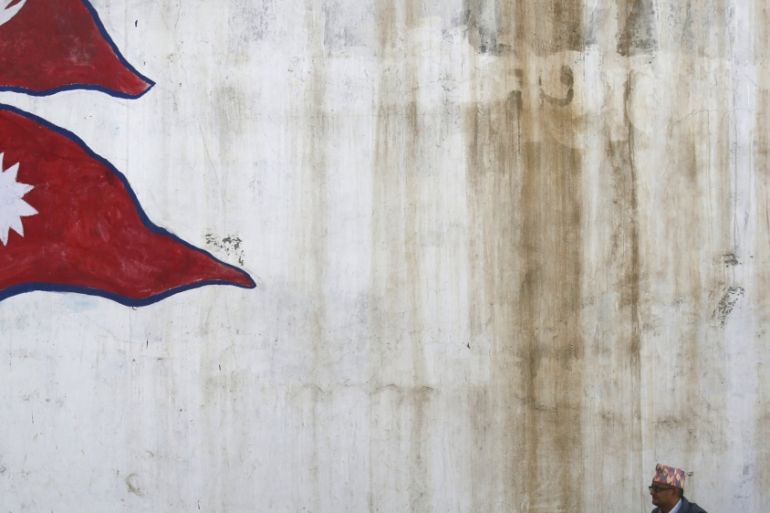Nepal urged to repeal new law over press freedom concerns
New criminal code makes sharing confidential information an offence that deserves prison sentence.

The Committee to Protect Journalists (CPJ) has urged Nepal‘s government to repeal or amend a new criminal code adopted last week in order to remove provisions that threaten press freedom.
The law introduced on August 17 makes sharing confidential information an offence resulting in a prison sentence, sparking concerns among journalists that the laws could be used to muzzle the press.
Keep reading
list of 4 itemsGeorgia advances ‘foreign agents’ bill as 20,000 rally against it
Lawmakers brawl as Georgian Parliament considers ‘foreign agent’ bill
Journalist loses foot after being badly wounded in Israeli attack in Gaza
The code criminalises recording and listening to conversations between two or more people without the consent of the persons involved, as well as disclosing private information without permission, including private information on public figures.
It also prohibits photographing a person outside of a public space without their consent. New regulations also ban satire that disrespects an individual.
Depending on the infraction, journalists could face fines of up to 30,000 rupees ($270) and imprisonment of up to three years, according to the CPJ quoting the new code.
“Nepal’s new criminal code marks a giant step backward for press freedom,” said Steven Butler, CPJ’s Asia programme coordinator, said in a statement by the New York-based group released on Monday.
“Legislators need to go back and scrub the law of these overly broad provisions that effectively criminalise the normal newsgathering activities of journalists.”
Booming industry
Nepal’s media has grown dramatically since the monarchy was overthrown a decade ago following a brutal civil war, spawning dozens of newspapers and news channels.
A new constitution passed in 2015 enshrines the right to press freedom and bans censorship of news, which was common under the monarchy.
However, the Himalayan nation is ranked just 106 out of 180 countries in the Reporters Without Borders press freedom index.
Journalists face intimidation and arrest, particularly if reporting on issues deemed by authorities to affect national unity.